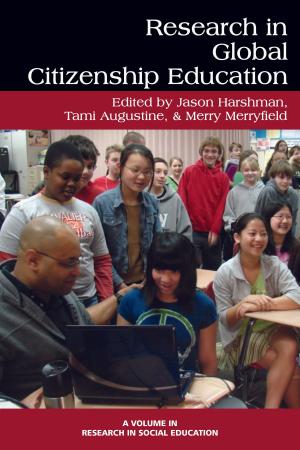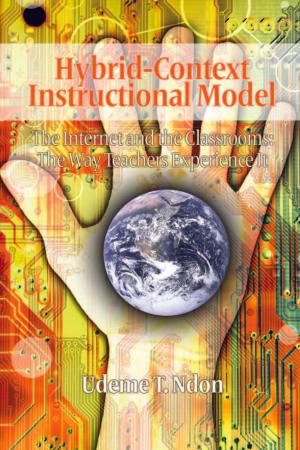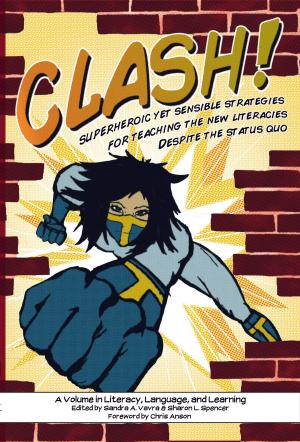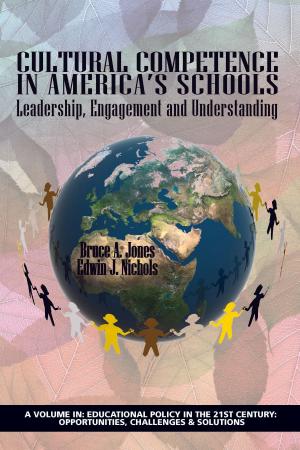What Would Christ Do?
Nonfiction, Religion & Spirituality, Theology, Ethics, Christianity, General Christianity, Reference & Language, Education & Teaching| Author: | William Jeynes | ISBN: | 9781681234045 |
| Publisher: | Information Age Publishing | Publication: | February 1, 2016 |
| Imprint: | Information Age Publishing | Language: | English |
| Author: | William Jeynes |
| ISBN: | 9781681234045 |
| Publisher: | Information Age Publishing |
| Publication: | February 1, 2016 |
| Imprint: | Information Age Publishing |
| Language: | English |
Many experts in education, psychology, science, philosophy, politics, and across the social sciences and humanities believe that a plethora of people in the world have lost their way and lack a moral compass. In a world in which youth often lack guidance from parents, countless individuals are hurting from broken relationships, and many people lack a sense of purpose, direction, and a sense of who they are, there is a growing awareness around much of world that people should revisit the teachings of Jesus Christ for answers. The Bible is the most published book in the history of the world for a reason. At the heart of Christ’s teachings is love, which sadly in many academic, political, and business circles has become the most feared fourletter word of all. In this context, the need to revisit the personal significance of the most quoted verse in the Bible, “For God so loved the world that He gave His only son…” and “God is love,” is axiomatic. In a world filled with divisiveness, a dearth of civility, a lack of love, a dismissive attitude toward any sense of truth and absolute values, and the inability for people to get along, it would seem that there is no timelier action one can take than to ask the pertinent question, “What would Christ do?” It is a vital question to ask not only as it applies to one’s personal life, but also to the world situation at large. For example, one can argue that the economic crisis of 20082009 in the West and the Asian economic crisis of 19971998 were largely the result of lack of character and the love of money and power than pervaded the government, business, and the general population. One can argue that had the nations of the world been guided by the example of love, selfsacrifice, humility, and integrity that Christ set, those crises would not have happened. Life is filled with enough challenges without a lack of virtue creating more trials. Addressing the question of, “What would Christ do?” can help the reader engage in better decision making that can literally change one’s life and help establish a reputation of love, character, and compassion that will open doors into a better life.
Many experts in education, psychology, science, philosophy, politics, and across the social sciences and humanities believe that a plethora of people in the world have lost their way and lack a moral compass. In a world in which youth often lack guidance from parents, countless individuals are hurting from broken relationships, and many people lack a sense of purpose, direction, and a sense of who they are, there is a growing awareness around much of world that people should revisit the teachings of Jesus Christ for answers. The Bible is the most published book in the history of the world for a reason. At the heart of Christ’s teachings is love, which sadly in many academic, political, and business circles has become the most feared fourletter word of all. In this context, the need to revisit the personal significance of the most quoted verse in the Bible, “For God so loved the world that He gave His only son…” and “God is love,” is axiomatic. In a world filled with divisiveness, a dearth of civility, a lack of love, a dismissive attitude toward any sense of truth and absolute values, and the inability for people to get along, it would seem that there is no timelier action one can take than to ask the pertinent question, “What would Christ do?” It is a vital question to ask not only as it applies to one’s personal life, but also to the world situation at large. For example, one can argue that the economic crisis of 20082009 in the West and the Asian economic crisis of 19971998 were largely the result of lack of character and the love of money and power than pervaded the government, business, and the general population. One can argue that had the nations of the world been guided by the example of love, selfsacrifice, humility, and integrity that Christ set, those crises would not have happened. Life is filled with enough challenges without a lack of virtue creating more trials. Addressing the question of, “What would Christ do?” can help the reader engage in better decision making that can literally change one’s life and help establish a reputation of love, character, and compassion that will open doors into a better life.















